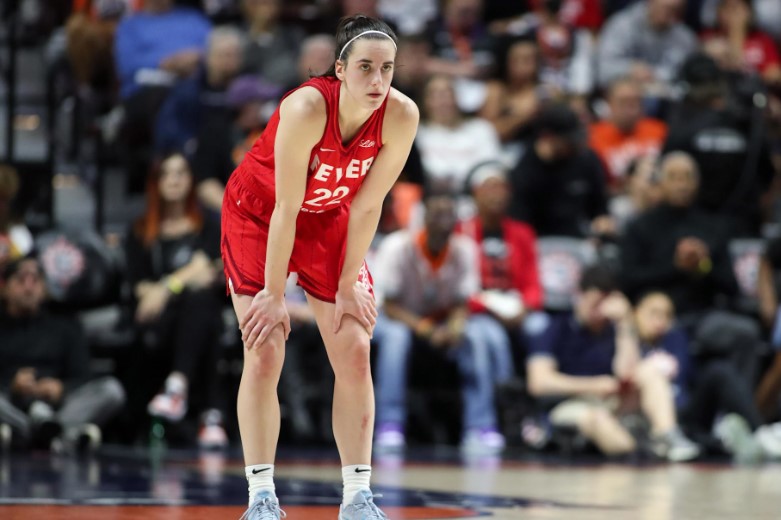
A recent incident involving Caitlin Clark and a Connecticut Sun fan has garnered significant attention after reports surfaced about the fan’s inappropriate behavior during a game. The fan was eventually removed from the venue, but details about what was said to Clark have only now come to light.
The information, shared by an individual who claims to have been present at the game, suggests that the fan in question, allegedly a member of the media, directed offensive remarks towards Clark. According to the post, the fan not only called Clark the “c-word” but also wished harm upon her, reportedly saying that he hoped she would “fall and break her neck.”
The person who made these allegations online provided evidence of being at the game and mentioned that similar stories have emerged from others who were in the vicinity. However, it should be noted that there is no definitive proof at this time, and the validity of these claims remains uncertain. The individual emphasized that if the information turns out to be false, they will retract their statements and remove the content.
The post also mentioned that after the incident, the fan returned to his seat and boasted to other Sun supporters about what had transpired. Despite this, when confronted by security, the fan reportedly downplayed his actions, claiming he had merely told Clark that she “whines too much.” Based on this explanation, security decided to issue a warning rather than take further action.
Multiple individuals have corroborated the claim that the fan was bragging about his actions post-incident, though no one confirmed hearing the exact words spoken. The original poster stated, “There’s no way that just saying ‘quit whining’ would have prompted Caitlin Clark to react so strongly.”
In the aftermath of the incident, there has been considerable discussion about the behavior of fans at sporting events. The poster noted that every fan base has its “bad eggs” and cautioned against generalizing the actions of a few to the entire community. They also highlighted that the security team should have acted more decisively, stating that their primary responsibility is to protect the players, not the courtside fans or media personnel.
The incident has sparked debate about the role of athletes in addressing such behavior. The poster argued that athletes should not be held accountable for the actions of fans and that their main responsibility is to perform on the court. They likened it to not expecting a professional in another field to handle issues outside their expertise.
The incident underscores ongoing concerns about fan behavior at sporting events and the need for robust security measures to ensure the safety and well-being of players. While the incident itself may not reflect the broader Connecticut Sun fan base, it raises important questions about how such situations should be handled in the future.





